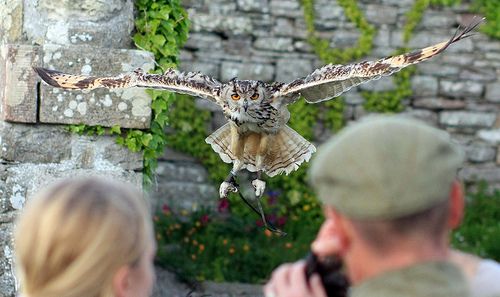Cat behavior and training has not been as popular as pet dog training but is becoming more necessary as more feline enthusiasts realize that cats really do have complex needs and are different from their canine companions.
But feline behavior and training isn’t anything new–it just hasn’t been seen as a need until people face problems such as litterbox avoidance, scratching, or aggression.
Despite the fact that many people believe that cats cannot be trained, that is simply nonsense and an idea that keeps being perpetuated through popular culture.
My cat, Yasmen was trained and loved to travel. Since I worked in movies and television training animals, I tend to train everything and anything. So do my colleagues.
If you watch television, all those cats and kittens in commercials are all fully trained.
Now, all this is a lead into answering the question from a very patient reader, Terese Oosterbaan.
She is a cat lover who donates her time to helping shelter cats and dreams of an animal career. She has written in a few times but due to my hiatus, I haven’t been able to get to her question until now.
So, Terese–this is mainly for you. Thanks for being a reader and being so diligent in wanting to know your options.
When I started my career, I enrolled in private programs as well as college to earn my degree in animal management, behavior and training. It was well in advance of the existence of any behavior and training programs, or societies giving out certifications today.
Even with the options that began to emerge over the past twenty years or so, there were not many companion animal programs that specifically focused on cats.
Today there still are not many options since most are combined with pet dogs in companion animal programs. This is likely to change as more interest grows and pet parents become more sophisticated in their care of those fabulous felines.
However, there are a few avenues you can explore. Connecting with other professionals, reading up on behavior and training, enrolling in courses, and attending conferences can be a good start.
Begin by exploring these resources:
American College of Veterinary Behaviorists
The American College of Veterinary Behaviorists is a professional organization whose members are board-certified in the area of veterinary behavior.
American Veterinary Society of Animal Behavior
The American Veterinary Society of Animal Behavior (AVSAB) is a professional membership organization for those involved, or who are interested in animal behavior.
University of California, Davis
On the west coast, UC Davis is the premiere university for animal behavior or a veterinary medical focus.
Tufts University (Cummings School of Veterinary Medicine)
Tufts University offers continuing education courses on a variety of topics including companion animal behavior. You can find more information and links on the continuing education page or affiliate continuing education program page.
Animal Behavior Society
The Animal Behavior Society (ABS) is a professional membership organization that provides certification to help set minimum standards for being a professional applied animal behaviorist.
International Association of Animal Behavior Consultants
Known as IAABC, the Internation Association of Animal Behavior Consultants offer a great series of continuing education courses along with a good reading list of works to get your feet wet in the area of animal behavior or training.
Companion Animal Sciences Institute
Feline Behavior Science & Technology is offered by the Companion Animal Institute which also has cooperative arrangements for CEUs with many of the certifying organizations that now exist in the companion animal realm.
Animal Behavior College
An online training program for cats was just announced in late 2011. Animal Behavior College offers different study programs that earn a certificate and CEUs. This might be a good option to start and see if it might be something for you.
Regional Resources
One of the best options is to explore the local area resources, finding reional resources through your local Chicago, IL shelters is a good place to start. They often know of educational options close to you to get your on your way.
The Higgins Animal Clinic has a pet behaviorist on staff and the Anti-Cruelty Society are good local resources–so you might also reach out to them.
Do you have other animal career resources to share? Let me know over on my Facebook page.
Photo Credit: Tambako



